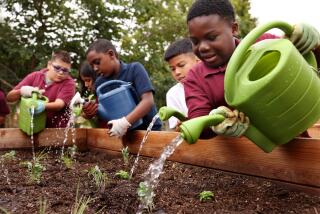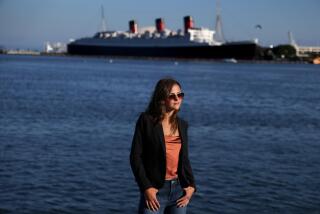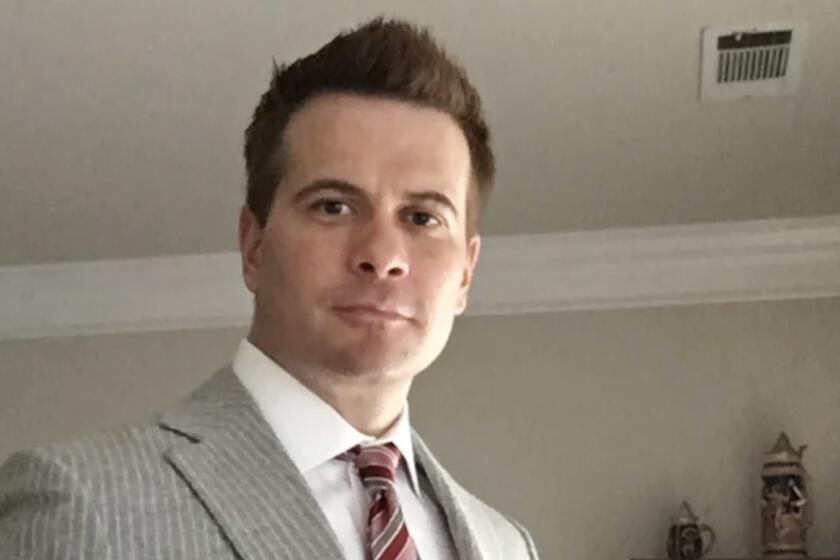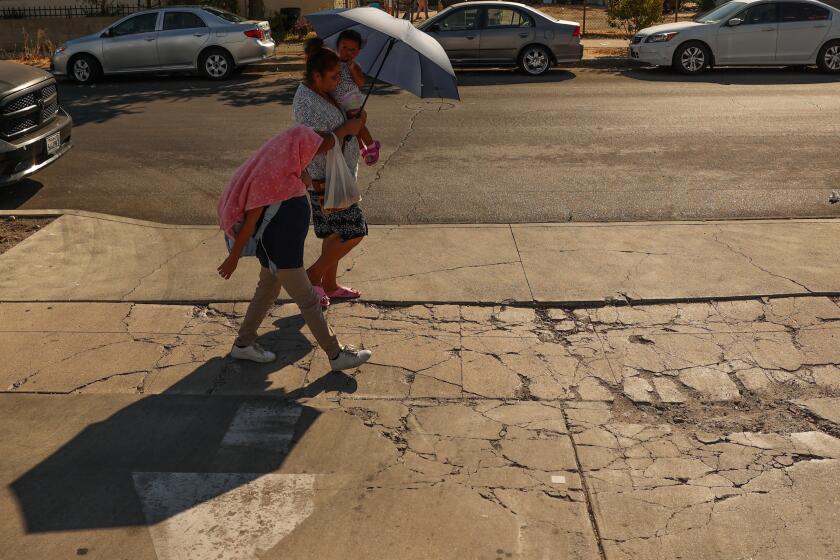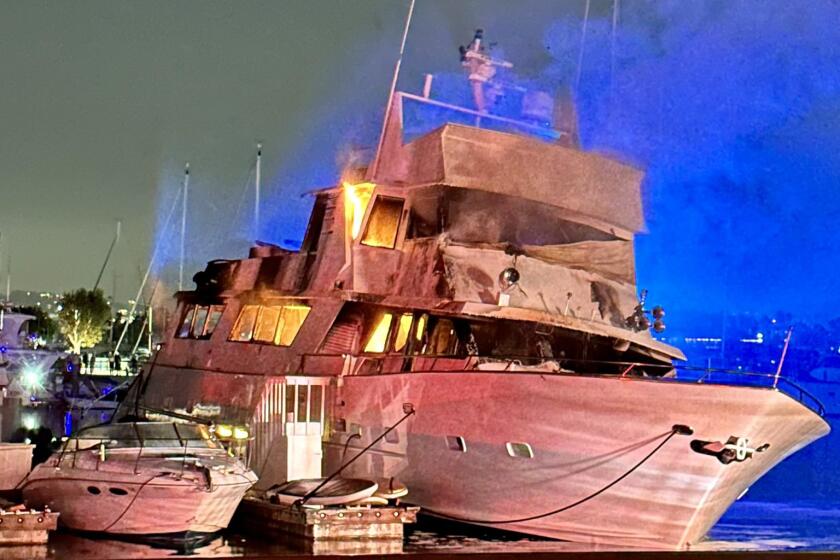Students learning lessons in social responsibility
Taking a cue from TOMS Shoes — in which the company donates a pair of shoes to needy children for every pair bought — the social entrepreneurship class at Environmental Charter School in Lawndale recently came up with ways to do something similar with such everyday items as T-shirts and socks.
“What if we make the hoodie reversible to reduce the need to buy more than one,” asked Mohamad El Hajj Younes, 17. “And for every one sold, another would be donated to a shelter in the county where they purchased it.”
His classmates huddled in groups to develop “for-purpose” business plans, instead of the traditional for-profit and nonprofit models.
The 13-year-old independently run charter designs its courses with a focus on environmental sustainability. Teachers Brandie Cobb and Brent Freeman adapted the economics class curriculum to weave in lessons about civic responsibility.
“Students are surrounded by social issues and are looking for ways to address them,” Cobb said.
Other schools have also adopted such social awareness programs. The Los Angeles Unified School District is participating in the Aspen Challenge, a competition for 20 high schools in which the winner will attend the Aspen Ideas Festival in Colorado.
World-renowned inventors, explorers and artists, including oceanographer David Gallo and actress Anna Deavere Smith, spoke to those teams recently to encourage them to develop solutions to social problems.
“Social awareness is built almost without exception through experience,” said L.A. Unified Supt. John Deasy. “You have to experience an event… that triggers the ability to understand social awareness and then scaffold on previous knowledge.”
The students brainstormed over such questions as: How can dance and art resolve conflicts and change communities and can underutilized school resources be used on non-school days to create a nutritional revolution?
“Walking around our campus, people are in their comfort zones,” said Janet Shin, a junior on the John Marshall High School team. “They’re not engaged and it reflects how they participate in the community.”
The idea behind programs like the social entrepreneurship class and the Aspen Challenge is to take students out of that comfort zone, to encourage them to engage with their communities and the world outside school.
The key is to address students “as if they are people who are going to create change,” said Fréda Antoine, the Fairfax High School environmental science teacher and team coach. She said the opportunity gives her students and others a level of accountability not usually awarded to them at school.
“They are the ones who will ultimately inherit the Earth and they need to learn to be responsible,” she said.
The Aspen Challenge was created in part by the Bezos Family Foundation, established by Mike and Jackie Bezos, parents of Amazon.com founder Jeff Bezos, to make education an interactive experience.
“Our belief is that you necessarily don’t own your education unless you put it into action, so we’re focusing on the youth voice,” said Jackie Bezos. “We’re bringing them in at a younger age to be co-creators of solutions.”
Environmental charter student Kiera Adams had never heard of the term “social entrepreneurship,” but now the 17-year-old hopes to one day work for a company with a community awareness policy. She and two team members won a class competition to turn an easily disposable item into a reusable gift by turning a whoopee cushion into a birthday balloon.
“I’ve become impassioned about our community and finding ways to fix social injustices we all face,” she said. “If items are available that help people, it makes me want to buy that item and help humanity in a way.”
dalina.castellanos@latimes.com
More to Read
Sign up for Essential California
The most important California stories and recommendations in your inbox every morning.
You may occasionally receive promotional content from the Los Angeles Times.
